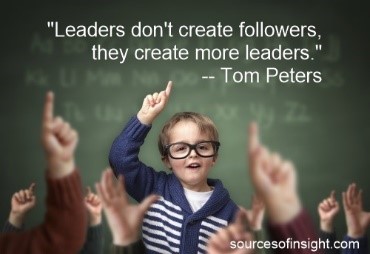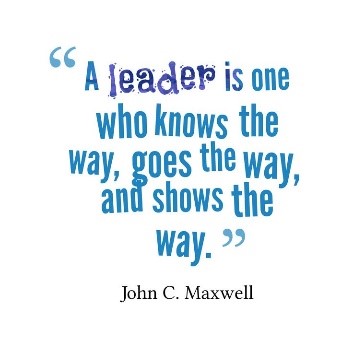
What can leaders learn from Parenting?
I had written an article a few months back that was titled “What can professionals learn from toddlers?”. It was inspired by observing my daughter and how I perceived she viewed life. I thought a lot of parallels could be drawn between a toddler’s outlook towards life and how adults should (but not necessarily do) behave as professionals.
This experience gave me a whole new perspective of life not just from a toddler’s point of view but also from a parenting point of view. This gave me the opportunity to look at myself and reflect on how I have changed as a person, and so, I could draw some parallels between parenting and leadership.
This article focusses on those similarities and how a leader can reflect on the attributes of a good parent in order to become a great leader at work.
Compassion
This should come naturally when we become parents. It is the side of me I never knew existed. Since my daughter came into our lives, I naturally started to see everything from her point of view (and at times I had to put in the effort). This helped me exercise a lot of patience while dealing with her and whatever was troubling her at that moment. I must admit I am not always successful in demonstrating tolerance towards her tantrums/complaints but that’s OK because it is a part of the process of growing into a parent. A better parent than I was yesterday.
Please read the above paragraph again but this time, replace the word “Parent” with “Leader” and “Daughter” with “direct report” (for lack of a better word).
Make them independent
Parents genuinely want their children to do better and become better than them in every aspect of life.
For me this comes from observing my father when I was younger. On numerous occasions he told me that all he wanted was for me to do better than him and be more successful in my personal and professional life. He didn’t say this because he didn’t do well himself. In fact, he is the most compassionate and caring father I could have asked for and he was also incredibly successful in his career and ran a successful business post retirement. He could have said “I want you to be as successful as I am” but he always said, “I want you to be MORE successful and a BETTER person than I am”.

As a parent, we want our children to gain from our knowledge and wisdom and also learn more on their own and thus become an improved version of themselves. How I think my father ensured that, was rather than tell me “what to do”, he thought me “how to think” on my own. That made me an independent person with the confidence of facing most situations in my life on my own.
A leader should not be any different. They must enable their followers (again for the lack of a better word) to be independent and to learn how to think and arrive at an approach and the solution to any problem on their own rather than being spoon fed. To a lot of “Managers” of today, being there to constantly tell people what to do is a mark of a good leader. On the contrary, that is the most harmful approach one can take.
Let them make mistakes. You can’t always control what and how they do.
Now when you teach your children to be independent, there is always a risk of them getting it wrong a few times. Every time my daughter trips over and falls on the floor, I just look at her and encourage her to get back on her feet and dust herself off. When I do that, I notice that my daughter does not make a fuss. On the other hand, if I show any signs of panic, she senses the tension which gives her the feeling that something is wrong and that frightens her.
I can’t always prevent her from falling. The key is to allow children to fall so that they learn how to react to the situation, learn from mistakes and move on with life.
A leader in an organisation must also be the same with their reports. They are bound to make mistakes in projects. Rather than panicking about their failure and showing frustration, you help them identify where they went wrong and allow them to learn from mistakes. Obviously, you won’t allow your kid to jump off a building in the name of “learning from mistakes”. That would be rather stupid parenting.
Do as I do and not as I say
Children don’t follow what you say as much as they follow what you do. Hence as parents, we often lead by example. Parents always make an effort to behave carefully in front of children, whether it is arguing with each other, speaking ill of others or using foul language.

Similarly, when leaders lead by example, it is all the more effective especially when they are a mentor/coach to their reports. Going back to the previous point, leaders must allow themselves to make mistakes too. What the reports will learn from that is that it is natural to make mistakes and the important thing is how to recover from the mistake and learn from it.
Provide for them
As parents, we provide our children with everything that enables them to understand things better and be able to move forward in life. We often ask what our children are passionate about and point them in the right direction in the form of the right kind of education, that will allow them to realise their ambitions. The parents don’t think if this education is going to pay them back with any benefit in the future. The only benefit they see, is for their child.
That is not any different from what a leader must do. They must talk to their reports, understand what they want to do with their career, coach them in the right direction and also provide them with training that is required. Although usually companies ensure that training is provided with a view to benefit from that, a leader must also look at how the training will help their reports become better professionals and leaders.
Be their life coach.
Leaders must take the responsibility to be a role model for their subordinates. Employees don’t just learn to work effectively and efficiently but also pick on behavioural characteristics, like ethics, integrity, honesty, etc., from their mentors/leaders/parents. They learn soft skills by observing their leaders and develop emotional intelligence which helps them be street smart. Leaders, just like parents, are coaches for life.
Conclusion
The following four attributes are really important for a leader (and for a parent).
- Understanding – To constantly communicate, be in touch and understand your child (or your direct report)
- Review – Frequently review their status and performance to identify strengths and weaknesses.
- Recognition – To recognise achievements in a timely manner so the child/subordinate feels appreciated. It may involve rewards as appropriate to the achievement.
- Correction – To identify weaknesses and take corrective action to help fill the gap and/or punish bad behaviour/attitude where necessary.
You will see that parents who do all the above turn out to have decent children (more often than not) and leaders who do all the above turn out to be highly respected and admired leaders. You can pick your favourite leader you had in your life and you will notice they displayed these qualities.
Another important attribute of a good leader is to give selflessly without any expectation of return. So much so that, when the employee feels the need to move on to better opportunities, the leader understands that they are in the job (as leaders) not to ensure no one leaves the company, but to ensure they shape leaders of the future. Good leaders, just like parents must be a friend and guide for life; a memorable one.
 Author: Arvind Arcot
Author: Arvind Arcot
Arvind brings over 20 years of professional experience, with extensive Banking, Finance and ICT sector experience, rounded out by experience in Government (Australian), Transport, Petroleum, Higher Education and Retail. He has been deployed on numerous consulting engagements throughout the Asia Pacific region, enabling him to engage in highly varied client organisations.
Arvind is a passionate leader and has established and run various practices in his career. He also has a passion for writing and publishing white papers/articles to document and share experiences, learning and observations from his professional career. Arvind is also a nationally recognised industry speaker and has spoken in various conferences in Australia. He is currently a Senior Leader at UniSuper, Australia and an Executive Board Member of IIBA, Australia Chapter.